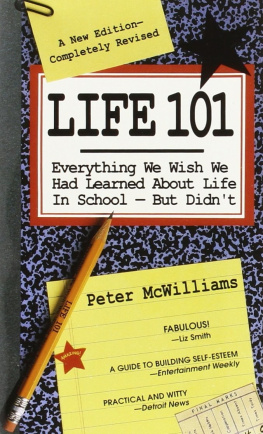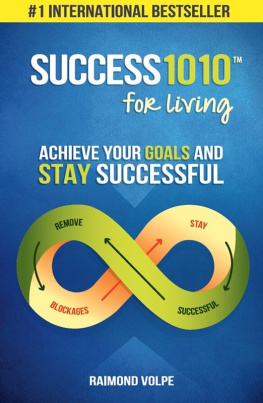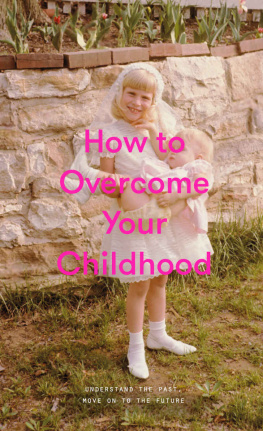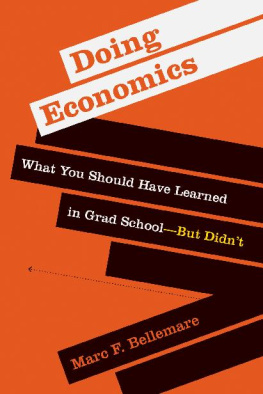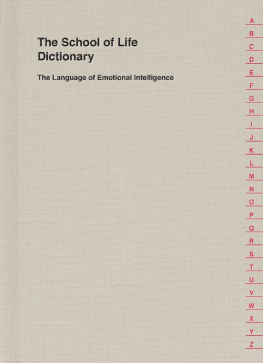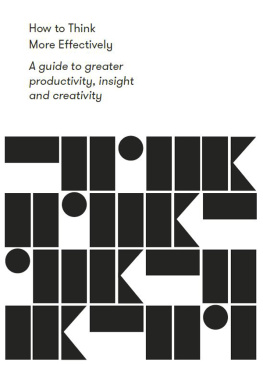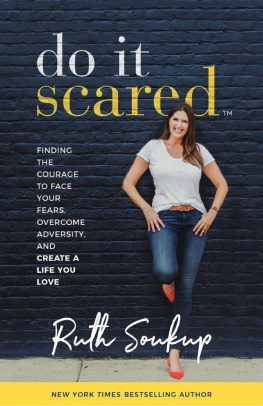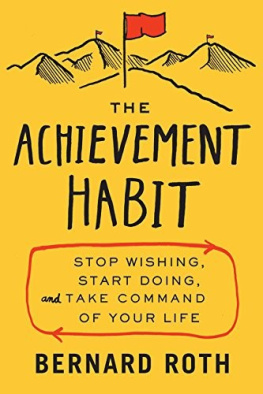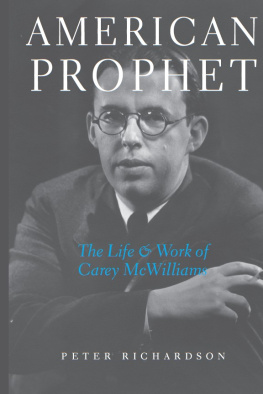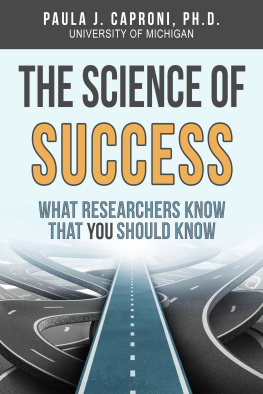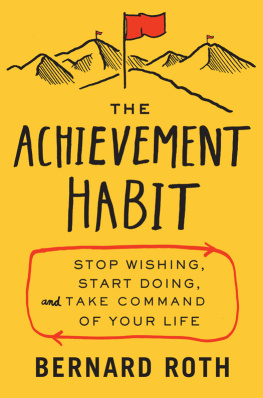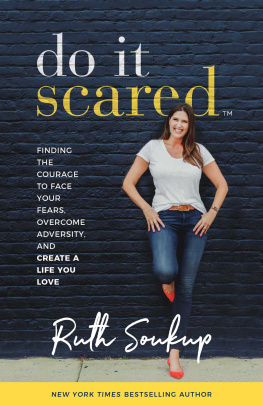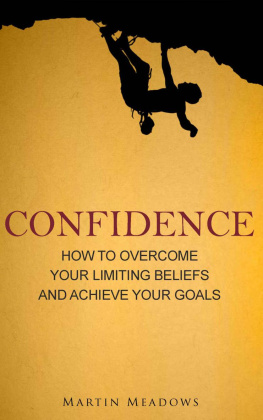Peter McWilliams - Life 101: Everything We Wish We Had Learned about Life in School--But Didn’t
Here you can read online Peter McWilliams - Life 101: Everything We Wish We Had Learned about Life in School--But Didn’t full text of the book (entire story) in english for free. Download pdf and epub, get meaning, cover and reviews about this ebook. year: 1994, publisher: Prelude Press, genre: Romance novel. Description of the work, (preface) as well as reviews are available. Best literature library LitArk.com created for fans of good reading and offers a wide selection of genres:
Romance novel
Science fiction
Adventure
Detective
Science
History
Home and family
Prose
Art
Politics
Computer
Non-fiction
Religion
Business
Children
Humor
Choose a favorite category and find really read worthwhile books. Enjoy immersion in the world of imagination, feel the emotions of the characters or learn something new for yourself, make an fascinating discovery.
- Book:Life 101: Everything We Wish We Had Learned about Life in School--But Didn’t
- Author:
- Publisher:Prelude Press
- Genre:
- Year:1994
- Rating:3 / 5
- Favourites:Add to favourites
- Your mark:
- 60
- 1
- 2
- 3
- 4
- 5
Life 101: Everything We Wish We Had Learned about Life in School--But Didn’t: summary, description and annotation
We offer to read an annotation, description, summary or preface (depends on what the author of the book "Life 101: Everything We Wish We Had Learned about Life in School--But Didn’t" wrote himself). If you haven't found the necessary information about the book — write in the comments, we will try to find it.
Peter McWilliams: author's other books
Who wrote Life 101: Everything We Wish We Had Learned about Life in School--But Didn’t? Find out the surname, the name of the author of the book and a list of all author's works by series.
Life 101: Everything We Wish We Had Learned about Life in School--But Didn’t — read online for free the complete book (whole text) full work
Below is the text of the book, divided by pages. System saving the place of the last page read, allows you to conveniently read the book "Life 101: Everything We Wish We Had Learned about Life in School--But Didn’t" online for free, without having to search again every time where you left off. Put a bookmark, and you can go to the page where you finished reading at any time.
Font size:
Interval:
Bookmark:
LIFE 101Everything We Wish We Had Learned AboutLife In School -- But Didn'tBy Peter McWilliams (1950-2000)Table of Contents Part One: Introduction To Life Part Two: Advanced Tools For Eager Learners Part Three: Master Teachers In Disguise Part Four: Tools For Successful Doers Part Five: To Have Joy And To Have It More Abundantly PART ONE INTRODUCTION TO LIFE I call this book LIFE 101 because it contains all the things I wish I had learned about life in school but, for the most part, did not. After twelve (or more) years of schooling, we know how to figure the square root of an isosceles triangle (invaluable in daily life), but we might not know how to forgive ourselves and others. We know what direction migrating birds fly in autumn, but we're not sure which way we want to go. We have dissected a frog, but perhaps have never explored the dynamics of human relationships. We know who wrote "To be or not to be, that is the question," but we don't know the answer. We know what pi is, but we're not sure who we are.
We may know how to diagram a sentence, but we may not know how to love ourselves. That our educational system is not designed to teach us the "secrets of life" is no secret. In school, we learn how to do everything--except how to live. Fred Sanford: Didn't you learn anything being my son? Who do you think I'm doing this all for?Lamont Sanford: Yourself.Fred: Yeah, you learned something. Maybe that's the way it should be. Unraveling life's "mysteries" and discovering life's "secrets" (which are, in fact, neither mysterious nor secretive) may take the courage and determination found only in a self-motivated pursuit. You probably already know there's more to life than reading, 'riting, and 'rithmetic.
I'm glad you learned reading, of course, or you wouldn't be able to read this book. I'm also glad I learned 'riting (such as it is). And 'rithmetic? Well, as Mae West once said, "One and one is two, two and two are four, and five'll get you ten if you know how to work it." That's what this book is about: knowing how to work it, and having fun along the way. Although a lot can be learned from adversity, most of the same lessons can be learned through enjoyment and laughter. If you're like me, you've probably had more than enough adversity. (After graduating from the School of Hard Knocks, I automatically enrolled in the University of Adversity.) I agree with Alan Watts, who said, "I am sincere about life, but I'm not serious about it." If you're looking for serious, pedantic, didactic instruction, you will not find it here.
I will--with a light heart--present hundreds of techniques and suggestions, and for each of them I make the same suggestion: Give it a try. If it works for you, fine--use it; it's yours. If it doesn't work for you, let it go and try other things that may. When you find things that do work for you, I advise you to follow Shakespeare's advice: "Grapple them to thy soul with hoops of steel." Naturally, not everything in LIFE 101 will be for you. I'm laying out a smorgasbord. The carrot-raisin salad you pass up may be the very thing another person craves, while the caviar you're making a beeline for might be just so much salty black stuff to the carrot-salad lover.
If I say something you find not "true," please don't discount everything else in the book. It may be "true" for someone else. That same someone else might say, "What nonsense," about something which has you knowingly muttering, "How true." It's a big world; we are all at different points on our personal journeys. Life has many truths; take what you can use and leave the rest. We don't receive wisdom; we must discover it for ourselves after a journey that no one can take for us orspare us. MARCEL PROUST If you take from this book ten percent--any ten percent--and use it as your own, I'll consider my job well done. (Hint: It's certainly not me--or I, as the grammatically correct among us would say.) (Second hint: It is definitely not me.) For now, welcome to LIFE 101 . (Hint: It's certainly not me--or I, as the grammatically correct among us would say.) (Second hint: It is definitely not me.) For now, welcome to LIFE 101 .
When you were born, you probably had quite a welcome, although you may have been too young to remember it. So, as you begin this "life," please feel welcome. Although it may be "just a book," it's a book of ideas from my mind to yours; a book of best wishes from my heart to yours. As James Burke observed, "When you read a book, you hold another's mind in your hands." (So be careful!) Here's to our time together being intimate, enjoyable, and loving. Welcome. The Meaning of Life . The Meaning of Life .
Very funny; very true. The question which precedes "What's the meaning of life?" is, of course, " Is there a meaning to life?" Beats the hell out of me. I'm going to explore the first question as though the answer to the second question is yes. If it's true that life has no meaning--no purpose--then it doesn't matter whether I've consumed a few pages speculating on the meaning of life. So let's play a game called "Life Matters." We'll start the game by assuming there is a purpose. DoingThings won are done; joy's soul lies in the doing. SHAKESPEARE One thing about humans: we are doing creatures. DoingThings won are done; joy's soul lies in the doing. SHAKESPEARE One thing about humans: we are doing creatures.
When we're not doing something, we're thinking about doing something, which, in its own way, is doing something. When we sleep, we toss and dream. We exercise to keep our bodies in shape so we can do some more. We are well designed for doing. Unlike trees, our bodies can move from place to place. In a matter of seconds, our emotions can move from happy to sad and back again.
Our thoughts move us to places we can't go physically--our memory moves us back in time, our intelligence anticipates future movement, and our imagination takes us to places we've never been. As to nature-you name it, and humans have either changed it, processed it, painted it, preserved it, moved it, or done something to it. (At the very least, we named it.) We seem bent on rearranging the world. The theatrical director Moss Hart had a country home. He would visit on weekends, and request of his landscape designer that a few trees be put over there, a stream over here, and please move that mountain a few hundred feet to the left. When playwright George S.
Kaufman visited Hart's home, he remarked, "This is the way God would do it if He only had money." The shortest answer is doing. LORD HERBERT 1583-1648 It's often been observed that, from afar, the doing of humans resembles the bustling of ants. We must occasionally wonder, "What is the purpose of all this doing?" We are not, after all, rocks, which don't seem to do much at all. We have the ability to do, but why? We must, of course, do in order to meet our bodily needs (which would not be as great if we did not do as much), but even after these needs are met, we keep on doing. Why? My suggestion: Our doing allows for more learning. Learning is not attained by chance, it must be sought for with ardor and attended to with diligence. ABIGAIL ADAMS 1780 LearningWear your learning, like your watch, in a private pocket: and do not pull it out and strike it, merely to showthat you have one. EARL OF CHESTERFIELD 1774 Life is for learning? Learning what? You name it. There's a lot to learn.
In just the first five years of life we learned physical coordination, walking, talking, eating, going potty, interaction with family and playmates, a great many facts about this planet, and all the other things that differentiate a five-year-old from a newborn infant. From age five to ten we learned reading, writing, arithmetic, geography, history, science, music, sports--and when we weren't watching television we learned some more about people: friends, relatives, enemies, allies, rivals, supporters, detractors. Some of what we learned early on turned out to be true (the earth is round; if you want a friend, be a friend; cleanliness is next to impossible) and some of it turned out to be false (Santa Claus; the Tooth Fairy; Kansas is more fun than Oz). Some things had to be relearned-or unlearned-and while relearning and unlearning, maybe we learned what to do about disappointment--and maybe we didn't. Looking in on most lives, we see dramatic growth until the age of fifteen or twenty. Then the growing slows, stops, or, in some cases, regresses.
Next pageFont size:
Interval:
Bookmark:
Similar books «Life 101: Everything We Wish We Had Learned about Life in School--But Didn’t»
Look at similar books to Life 101: Everything We Wish We Had Learned about Life in School--But Didn’t. We have selected literature similar in name and meaning in the hope of providing readers with more options to find new, interesting, not yet read works.
Discussion, reviews of the book Life 101: Everything We Wish We Had Learned about Life in School--But Didn’t and just readers' own opinions. Leave your comments, write what you think about the work, its meaning or the main characters. Specify what exactly you liked and what you didn't like, and why you think so.

